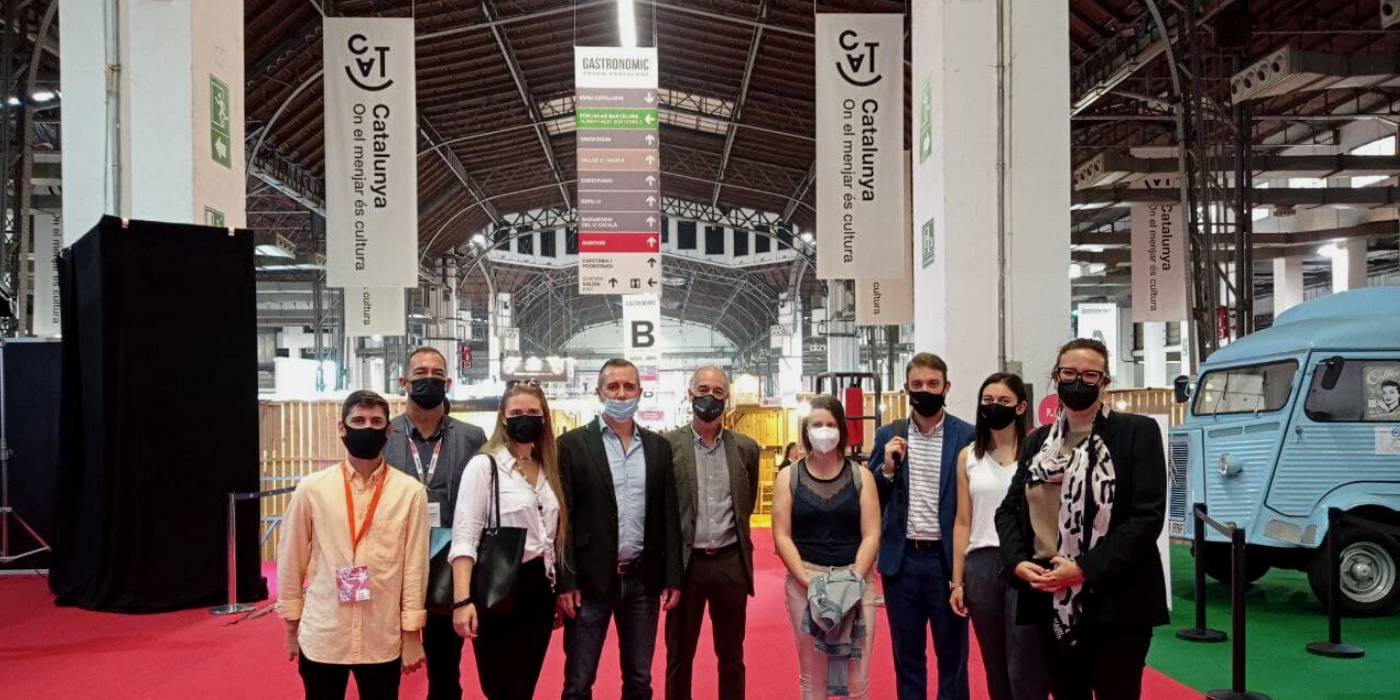The consortium of the Safe Smart Food project returns to the face-to-face activity with a meeting in Barcelona

-
After months of virtual work and remote meetings, the consortium of the European project joined again in Barcelona the week of 19 October, to define future activities to be carried out and to learn about good practices of the host country
-
The five clusters were able to visit the Gastronomic Forum of Barcelona, the facilities of the company Tupinamba, a gastroshow with local products or exchange contacts with potential Spanish stakeholders, among other initiatives
-
Next meetings will be held in the framework of European meeting points related to the agri-food sector, such as BioFach and Anuga Foodtec
In October, Foodservice Cluster and Packaging Cluster received in Barcelona the partners of the Safe Smart Food consortium formed by: Food Cluster Business Upper Austria (Austria), Smart Food Cluster (Lithuania) and Food Products Quality Cluster (Latvia), in addition to the two Catalan clusters, which were able to learn from practical examples of innovative enclaves and explore business opportunities, for their member companies, in foreign markets.
The consortium travelled to Fira Barcelona to visit the Gastronomic Forum, where the Director of the event, Jaume von Arend, offered an institutional welcome and guided tour of the exhibition’s highlights. Then, the Foodservice Cluster, also exhibitor of the event, led the European clusters by the stands of their member companies to get to know their services, such as Tupinamba, Caviaroli, Bidfood, Adernats, Celler de Capçanes o GB Food. The entities were able to see and test the gastronomic solutions offered by the HORECA sector of Catalonia, as well as potential routes for international collaboration.
One of the experiential activities pointed on the exchange agenda, was the meeting in a gastroshow of the city that, through local raw materials, explained the culinary history of the Catalan territory and the seasonal products par excellence.
The visit to Barcelona was the perfect occasion to bring the consortium together and to agree on future activities and actions to be carried out within the framework of the project. Biofach (02/2022) and Anuga Foodtec (04/2022) were the events chosen for the next face-to-face meetings during the first half of next year, two activities in which to promote internationalisation and collaboration. If you are planning to attend or you would like to visit either of the two fairs, and you need a personalised agenda with an exhibition tour, B2B meetings and much more, contact us!
To finish, we could visit the Tupinamba Group facilities in Canet de Mar and learn how they develop and manufacture their coffees and hot drinks, with natural products. Tupinamba is a family business with more than 120 years of experience, with which different routes of entry to the Austrian, Latvian and Lithuanian markets were explored.
In addition to the meeting, Safe Smart Food has recently published the ebook on which it has been working for the past few months: a virtual document that captures the main international trends and challenges in the Foodservice and Packaging sectors (such as shared value, promoting entrepreneurship etc...). You can get it HERE!
--
The Safe Smart Food project is composed by 5 clusters from 4 EU countries, Smart Food Cluster (Lithuania), Business Upper Austria (Austria), Packaging Cluster (Spain), Foodservice Cluster (Spain) and Food Products Quality Cluster (Latvia), who have come together to promote the internationalisation of the associated clusters and their member companies.
The aims of the project are to strengthen the collaboration between clusters and improve their management capacity to create the conditions of a favourable ecosystem in the agri-food sector to boost innovation, competitiveness, and internationalisation of SMEs and to offer to the cluster’s SMEs an integrated program of services based on excellence.